in Thoreau’s Journal:
The season advances by fits and starts; you would not believe that there could be so many degrees to it.

in Thoreau’s Journal:

The art of life—of a poets life is—not having anything to do, to do something.
in Thoreau’s Journal:
Again, as so many times, I am reminded of the advantage to the poet, and philosopher, and naturalist, and whomsoever, of pursuing from time to time some other business than his chosen one — seeing with the side of the eye. The poet will so get visions which no deliberate abandonment can secure. The philosopher is so forced to recognize principles which long study might not detect. And the naturalist even will stumble upon some new and unexpected flower or animal.

in Thoreau’s Journal:
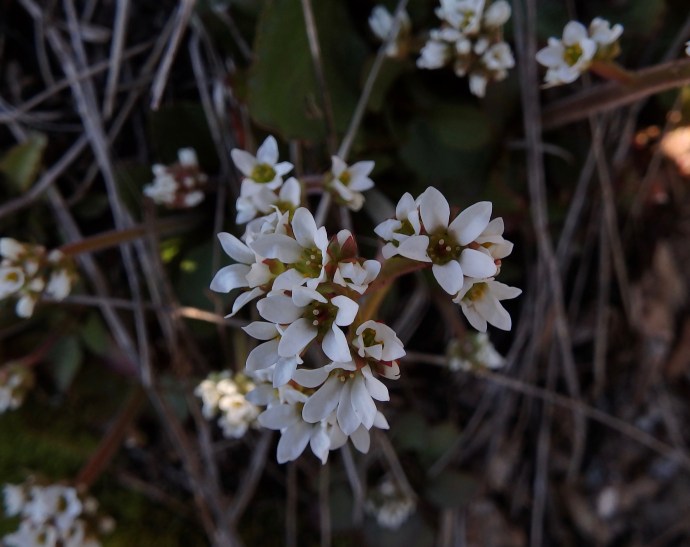
On Conantum Cliffs whose seams dip to the NW at an angle of 50º (?) and run NE and SW I find today for the first time the early saxifrage saxifrage vernalis in blossom—growing high and dry in the narrow seams where there is no soil for it but a little green moss.—following thus early after the bare rock—it is one of the first flowers not only in the spring of the year but in the spring of the world.—

It can take advantage of a perpendicular cliff where the snow cannot lie & fronting the S….This is the place to look for early blossoms of the saxifrage—columbine—& plantain leaved everlasting—the 1st 2 especially—
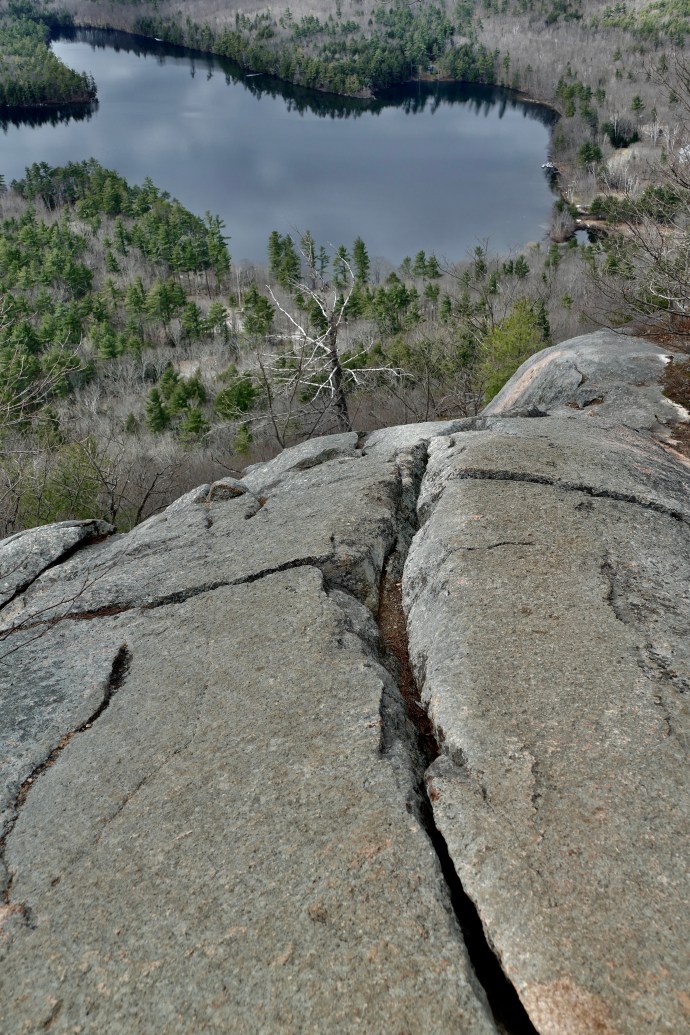
The crevices of the rock (cliff) make natural hot houses for them—affording dryness warmth & shelter. It is astonishing how soon & unexpectedly flowers appear.
in Thoreau’s Journal:
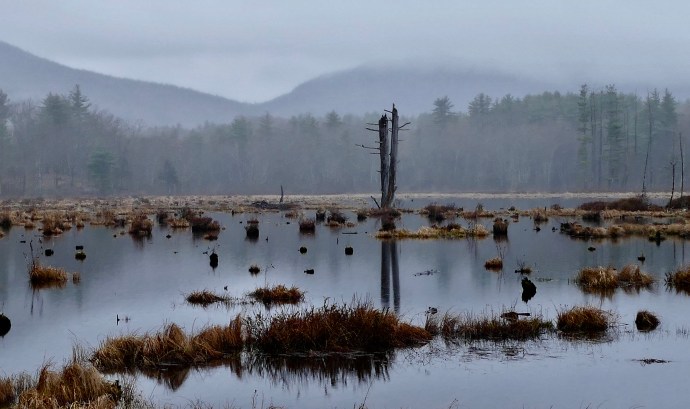
How pleasant in spring a still overcast warm day like this when the water is smooth!
in Thoreau’s Journal:
The first partridge drums in one or two places—As if the earth’s pulse now beat audibly with the increased flow of life. It slightly flutters all Nature & makes her heart palpitate—

Also, as I stand listening for the wren & sweltering in my great-coat—I hear the woods filled with the hum of insects—as if my hearing were affected—& thus the summer quire begins—The silent spaces have begun to be filled with notes of birds and insects & the peep & croak & snore of frogs—even as living green blades are everywhere pushing up amid the sere ones.
in Thoreau’s Journal:
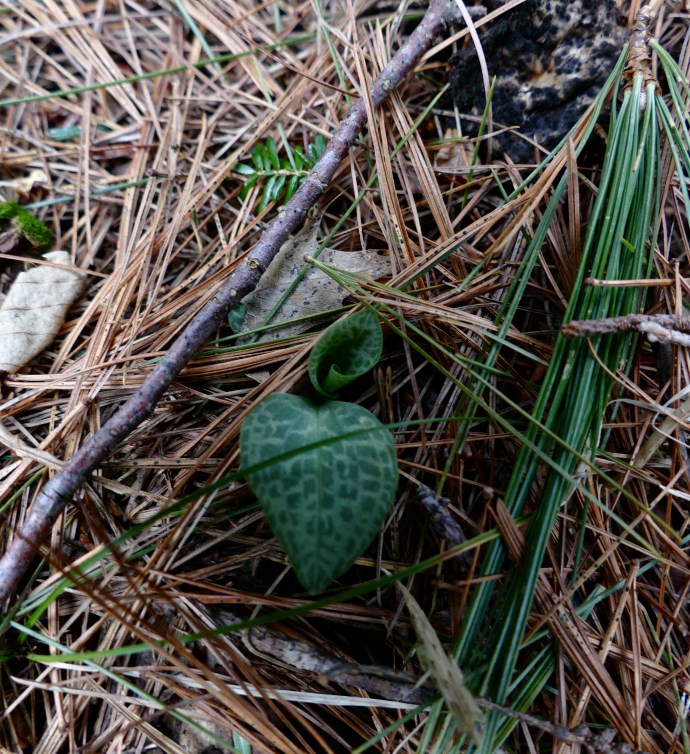
The rattlesnake plantain has fresh leaves.
in Thoreau’s Journal:
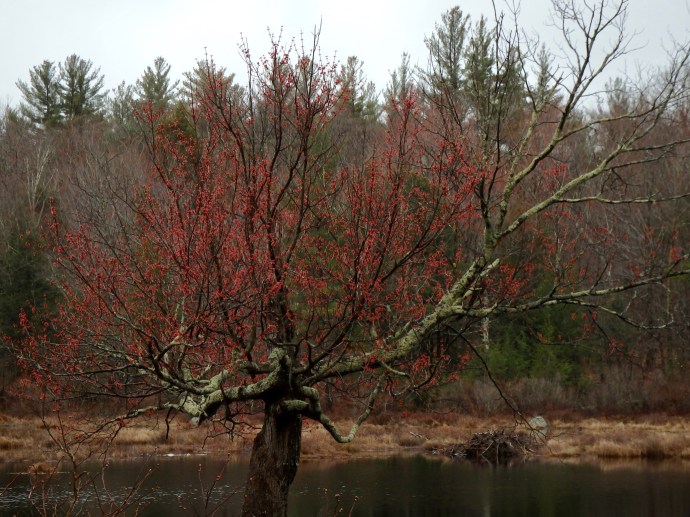
I find but one red-maple fairly in blossom on a few twigs over the water today. I think therefore the 22nd will do for the very earliest.

in Thoreau’s Journal:

What a gap in the morning is a breakfast!

A supper supersedes the sunset.
in Thoreau’s Journal:

The lilac is beginning to open today.

How we prize any redness on the ground..
in Thoreau’s Journal:
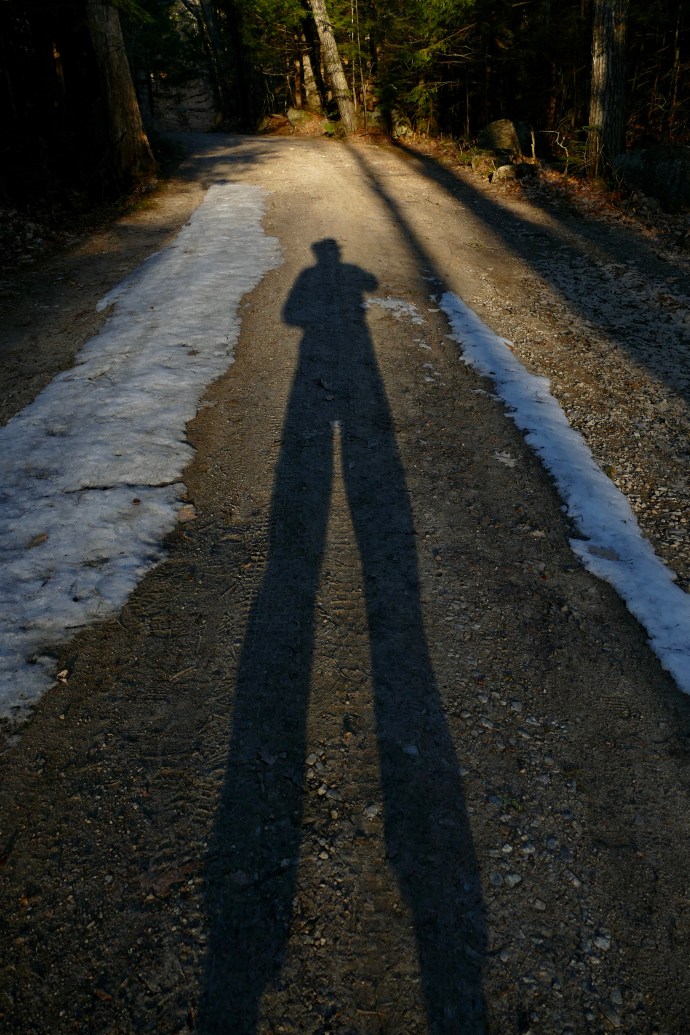
An early morning walk is a blessing for the whole day.
in Thoreau’s Journal:
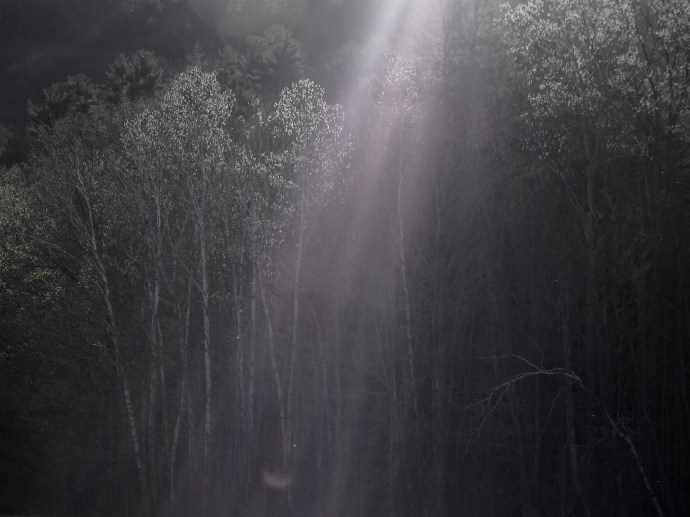
The calm bright hour after the sun came out was very pleasant.
in Thoreau’s Journal:
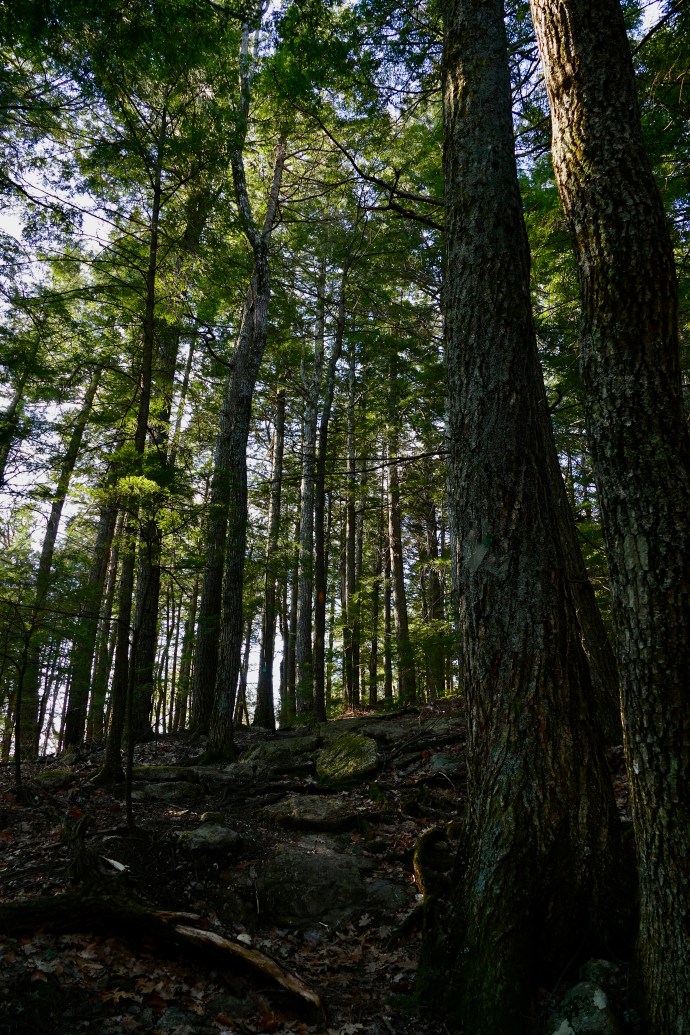
…As Cawley loved a garden, so I a forest.
in Thoreau’s Journal:
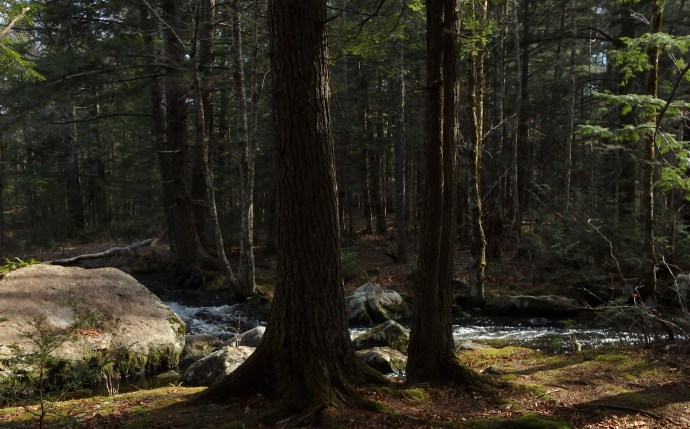
Sat on the smooth river bank under Fair Haven—
The sun-light in the wood across the stream.
in Thoreau’s Journal:
A cold disagreeable day—sun not fairly out—yet the snow of yesterday melts apace—you can almost see it melt. Each time I look out I see more of russet or green — At first the bare ground showed itself in the middle of the road & rapidly widened giving the birds wider pasture; then the grass in the fields began to peep through & the landscape to acquire a russet hue again— The green blades under the south side of the houses & hills appear to have grown wonderfully since the snow fell & to be several shades darker green.
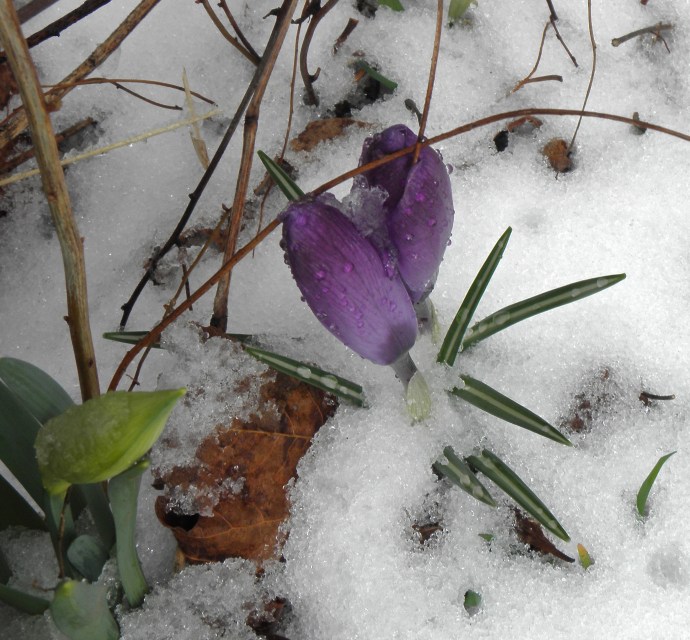
in Thoreau’s Journal:
9 Am. to Atkin’s Boat House–(No sun till setting) Another still moist overcast day–without sun but all day a crescent of light as if breaking away in the north. The waters smooth & full of reflections– A still cloudy day like this is perhaps the best to be on the water– To the clouds perhaps we owe both the stillness & the reflections–for the light is in a great measure reflected from the water.
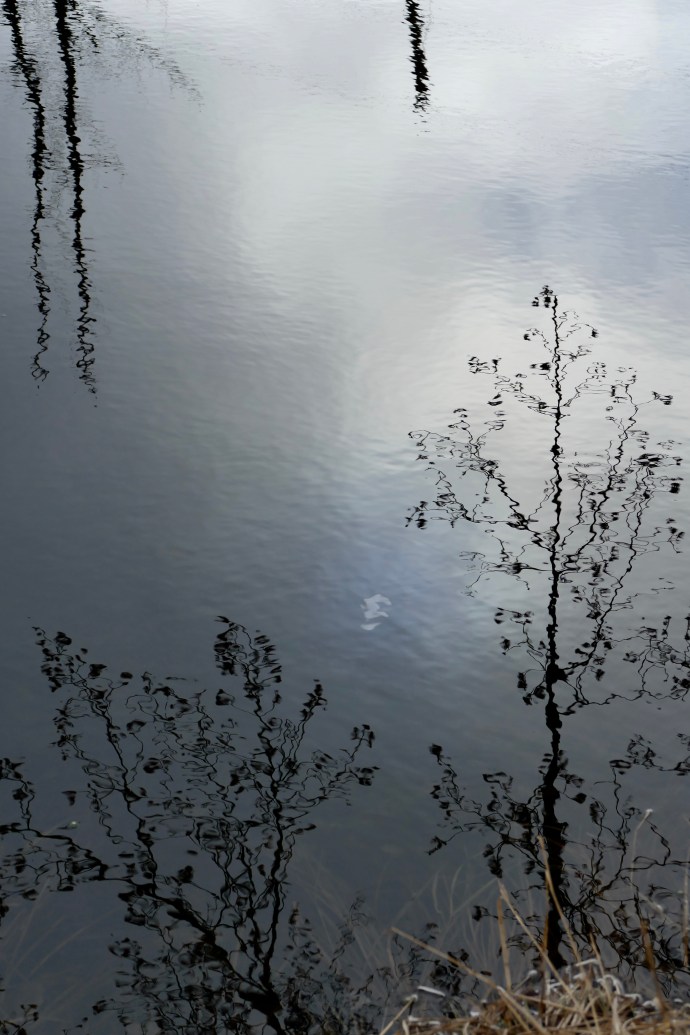
Robins sing now at 10 Am as in the morning–& the Phoebe–& pig– woodpecker’s caclle is heard–& many martins (with white-bel– swallows) are & twittering skimming above the water–perhaps catching the small fuzzy gnats with which the air is filled. The sound of church bells, at various distances–in Concord & the neighboring towns, sounds very sweet to us on the water–this still day– It is the song of the villages heard with the song of the birds. The great meadows are covered, except a small island in their midst….

in Thoreau’s Journal:

The golden brown tassels of the alder are very rich now—

in Thoreau’s Journal:
A driving snow storm in the night & still raging––5 or 6 inches deep on a level at 7 Am. All birds are turned into snow birds. Trees and houses have put on the aspect of winter. The travelers carriage wheels, the farmer’s wagon are converted into white disks of snow through which the spokes hardly appear. But it is good now to stay in the house & read & write. We do not now go wandering all abroad & dissipated––but the imprisoning storm condenses our thoughts–– My life is enriched– I love to hear the wind howl. I have a fancy for sitting with my book or paper––in some mean & apparently unfavorable place––in the kitchen for instance where the work is going on––rather a little cold than comfortable–– –– My thoughts are of more worth in such places than they would be in a well-furnished & warmed studio.

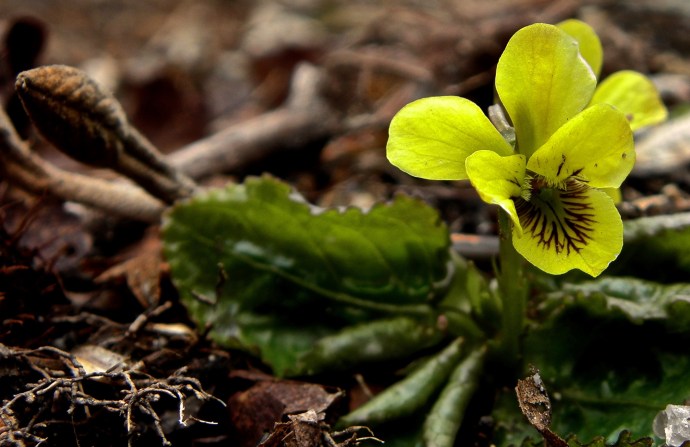


in Thoreau’s Journal:
A pure brook is a very beautiful object to study minutely. It will bear the closest inspection, even to the fine air-bubbles, like minute globules of quicksilver, that lie on its bottom. The minute particles or spangles of golden mica in these sands, when the sun shines on them, remind one of the golden sands we read of. Everything is washed clean and bright, and the water is the best glass through which to see it….
You must be logged in to post a comment.